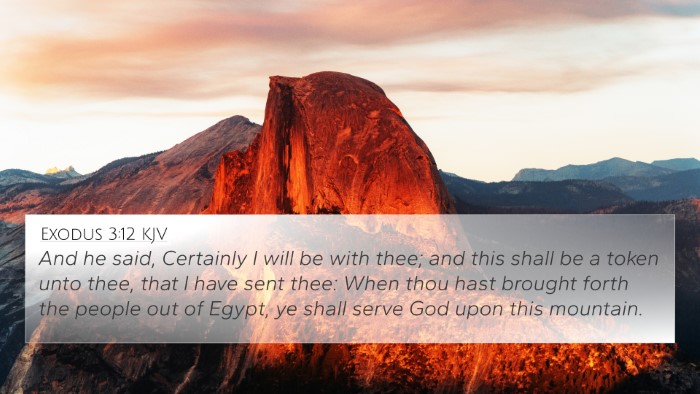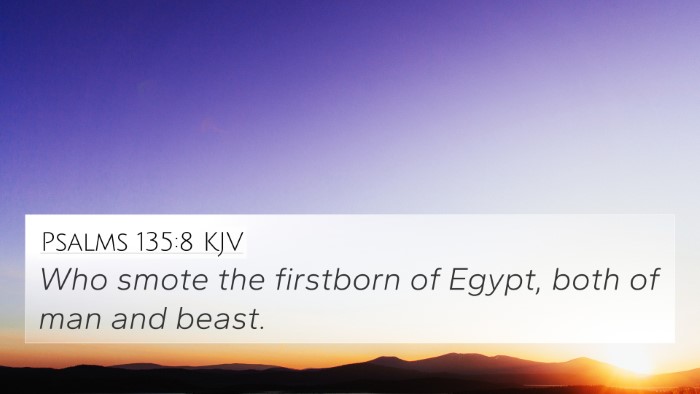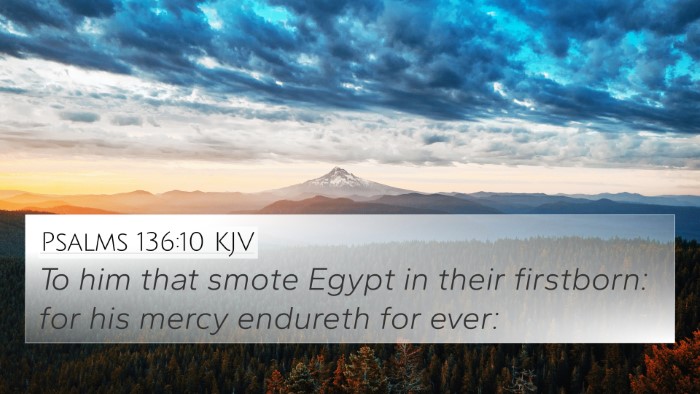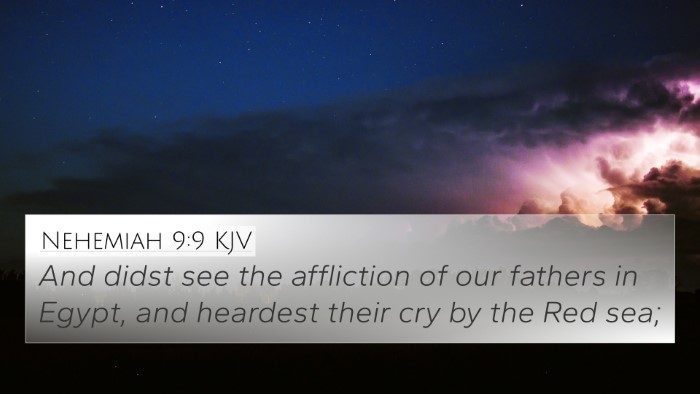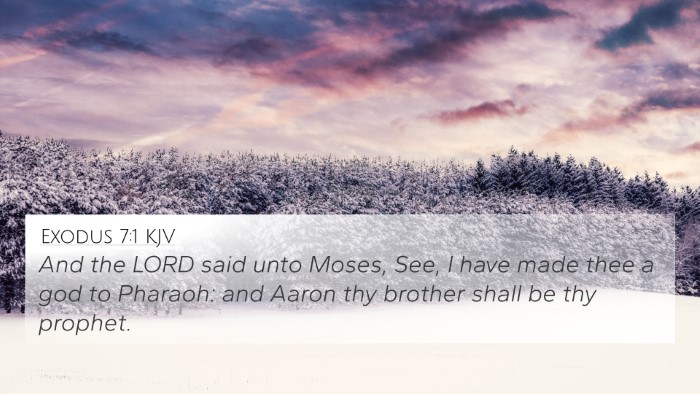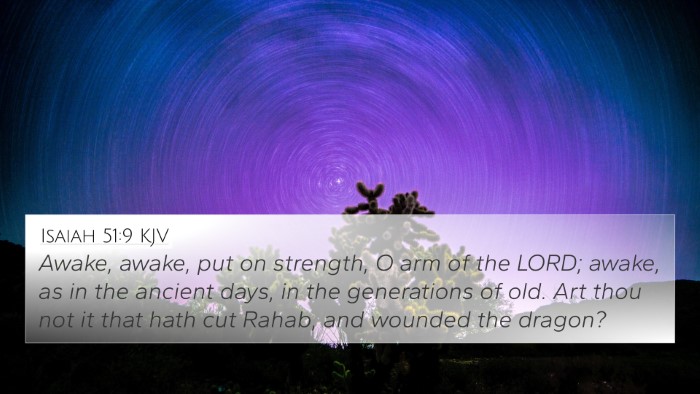Understanding Acts 7:7
Acts 7:7 states, "And the nation to whom they shall be in bondage will I judge, said God: and after that shall they come forth, and serve me in this place." This verse refers to God's promise regarding Israel's future deliverance from bondage and their eventual worship in the Promised Land.
Summary of Biblical Context
This verse is situated within Stephen's speech before the Sanhedrin, where he recounts Israel's history, emphasizing God's faithfulness and promises. It highlights the period of oppression Israel endured in Egypt and God's assurance of their deliverance.
Insights from Commentaries
-
Matthew Henry:
Henry notes the crucial aspect of God's judgment against the nations that held Israel captive. He emphasizes that God is sovereign over all nations, and His purpose will prevail despite the temporary suffering of His people.
-
Albert Barnes:
Barnes provides an interpretation focusing on the prophetic aspect of this promise, linking it to God's covenant with Abraham and the foresight of Israel's eventual deliverance. He indicates that this verse underlines the certainty of God's fulfillment of His covenants.
-
Adam Clarke:
Clarke delves into the idea of divine justice in God's promises. He reflects on how God not only promises deliverance but also the judgment of oppressors, indicating that the injustices faced by Israel would be addressed by God's hands.
Thematic Connections
This verse communicates themes of divine judgment, covenant promises, and future hope for God's people. It encapsulates God’s relationship with Israel and His unwavering commitment toward them, leading to their eventual restoration and worship.
Bible Verse Cross-References
- Exodus 3:19-20: God speaks of Egypt's oppression and His intentions toward Israel, mirroring the promise of deliverance.
- Genesis 15:13-14: The prophecy concerning Abraham's descendants and their future in a foreign land is further illuminated here.
- Luke 1:68-75: Zechariah’s prophecy acknowledges redemption and fulfillment of God's promises to Israel.
- Romans 9:4-5: Paul's acknowledgment of Israel’s privileges and God's faithfulness reflects Acts 7:7's assurances.
- Revelation 18:20: God's final judgment against the nations, echoing Stephen's statement about God's judgment.
- Isaiah 61:1: Proclamation of good news to the oppressed parallels Israel's deliverance.
- Matthew 5:11-12: Assurance for the persecuted, revealing God's providence and promise of future joy.
Connection to Other Scriptures
Acts 7:7 can be viewed through the lens of inter-Biblical dialogue. It connects the Old Testament promises to New Testament fulfillments, demonstrating God's ongoing narrative of redemption:
- Inter-Biblical Dialogue: This encompasses the relationship between the historical experiences of Israel and the prophetic declarations of God’s faithfulness through both Testaments.
- Scriptural Cross-Referencing: Engaging in cross-referencing can reveal deeper insights into themes such as suffering, deliverance, and worship across the biblical canon.
Tools for Bible Cross-Referencing
To explore the connections between Bible verses effectively, consider using:
- Bible concordance for finding verse references.
- Bible cross-reference guide for thematic studies.
- Cross-reference Bible study methods to analyze various biblical narratives.
- Bible reference resources for deeper examination of scripture themes.
Conclusion
Acts 7:7 serves as a powerful reminder of God’s sovereignty and faithfulness to His people. By exploring this verse through various commentaries and cross-references, readers can gain a holistic understanding of God's promises throughout the entire Scripture.



